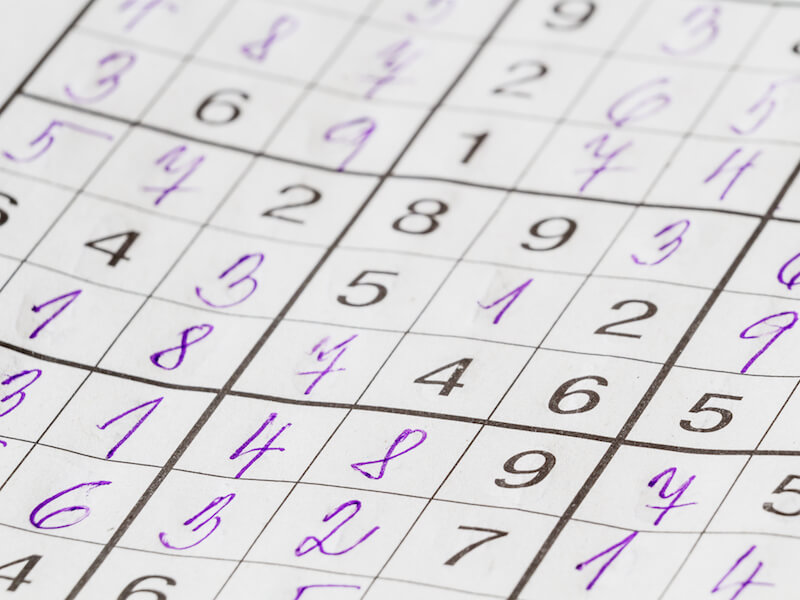Sudoku is a worldwide, popular puzzle game, largely because of its simplicity. All you need to play is some grids, some numbers, and a pencil. A very enjoyable way to pass some time, for many, is a soduku puzzle book. That it’s a workout for your brain is an added perk.
It’s becoming popular to use “brain workouts” to manage cognitive decline. But there are other means of delaying cognitive decline. Sometimes, your brain requires a boost in mental activation and research has revealed that hearing aids might be able to fill that role.
What is Mental Decline?
Your brain is a “use it or lose it” organ. Without stimulation, neural pathways have the tendency to fizzle. That’s why Sudoku has a tendency to keep you mentally active: it forces your brain to think, to creatively develop and strengthen a plethora of neural pathways.
While a certain amount of mental decline is a natural part of aging, there are some factors that can speed up or exacerbate that decline. Hearing loss, as an example, can provide a really formidable risk for your cognitive health. When your hearing begins to diminish, two things occur that really impact your brain:
- You can’t hear as well: There is less sound going in to activate your auditory cortex (the hearing focus of the brain). This can cause changes in your brain (in some situations, for example, your brain begins to prioritize visual stimuli; but that isn’t true for everyone). A higher danger of mental decline has been associated with these changes.
- You don’t go out as much: Self isolation is a very detrimental behavior, but that’s exactly what some people do when they suffer from hearing loss. Staying in to steer clear of conversations might seem easier than going out and feeling self-conscious (particularly as your untreated hearing loss progresses). This can deprive your brain of even more input.
Together, these two factors can cause a major change in your brain. Memory loss, difficulty concentrating, and ultimately an increased danger of dementia have been linked to this type of mental decline.
Is Cognitive Decline Reversable With Hearing Aids?
So if your hearing loss is neglected, this type of cognitive decline can be the result. This means that the number one way to reverse those declines is pretty clear: address your hearing loss! Usually, this means new hearing aids.
It’s well corroborated and also surprising the extent that hearing aids can delay mental decline. Experts at the University of Melbourne surveyed about 100 adults between the ages of 62-82, all of whom had some kind of hearing loss. Over 97% of those adults who wore their hearing aids for at least 18 months revealed a stabilization or even reversal of that cognitive decline.
Just wearing hearing aids resulted in a nearly universal improvement. That tells us a couple of things:
- One of the principal functions of hearing aids is to keep you in your social circle. And your brain remains more involved when you are social. It’s easier (and more enjoyable) to talk with your friends when you can follow the conversation!
- Stimulation is integral to your mental health, so that means anything that helps your auditory cortex stay active when it otherwise wouldn’t be, is most likely beneficial. As long as you keep hearing (assisted by hearing aids), this major region of your brain will remain stimulated, active, and healthy.
Doesn’t Mean Sudoku is a Bad Idea
This new study from the University of Melbourne isn’t the only one of it’s kind. If you have neglected hearing loss, numerous studies have demonstrated that wearing hearing aids can help slow cognitive decline. The dilemma is that not everyone knows that they have hearing loss. The symptoms can sneak up on you. So if you’re feeling strained, forgetful, or even a little spacier than usual, it might be worth talking with your hearing specialist.
You should still keep doing Sudoko and other brain games. They keep your brain refreshed and flexible and give you better overall cognitive function. Exercising and keeping cognitively fit can be assisted by both hearing aids and brain games.
